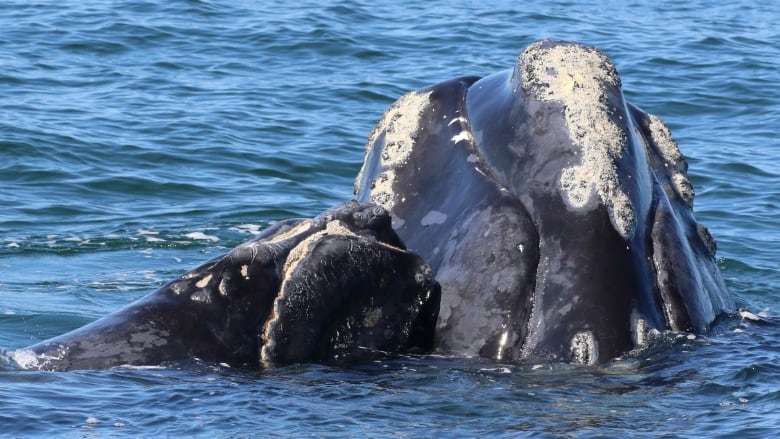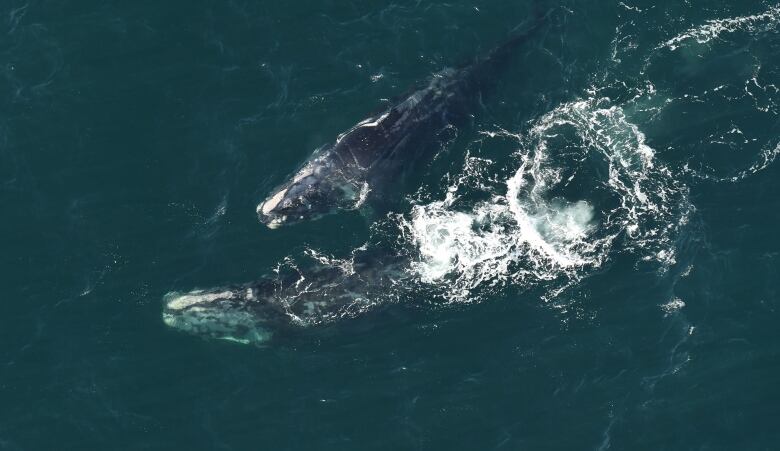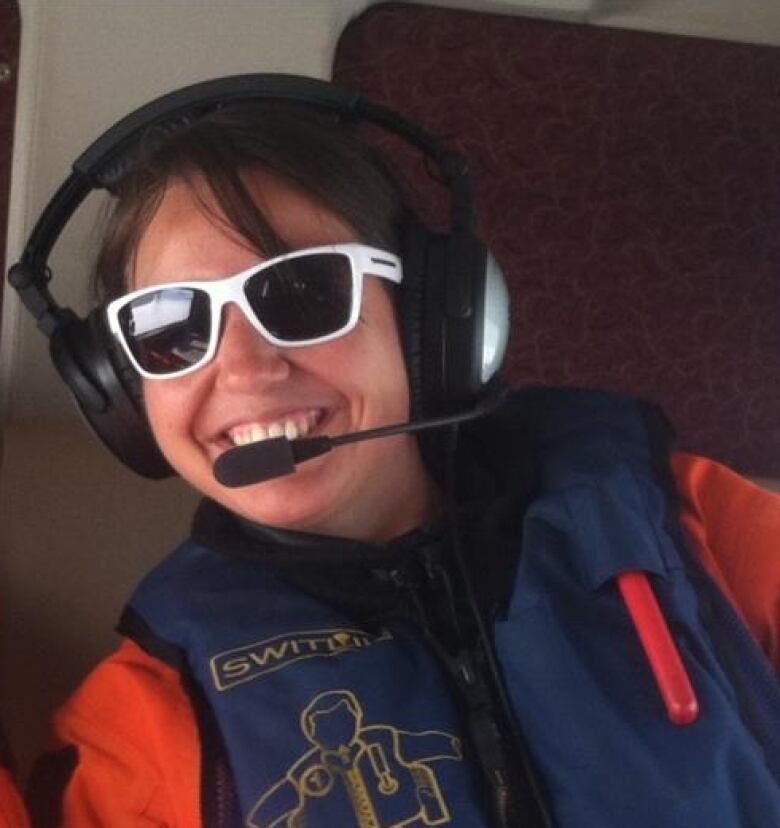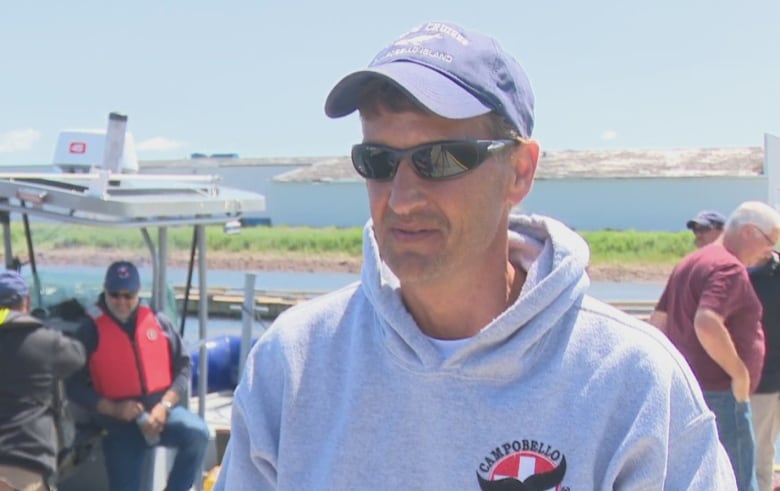Will adaptability save the North Atlantic right whale?
With only a few hundred whales left, recent studies show researchers' efforts to find answers

Changes to migration patterns are complicating efforts to protect the endangered North Atlantic right whale.
According to the New England Aquarium in Boston, Massachusetts, a new studyhas found that endangered whales are spending more time in Cape Cod Bay off the coast of Massachusetts before moving north.
The study was published inGlobal Ecology and Conservation, the New England Aquarium said in a news release, and"examined the impactsof climate change on the rapidly warming Gulf of Maine ecosystem."

Scientists conducting the studyfound that when spring comesearly, "the temperature cue directing right whales to Cape Cod Bay occurs earlier, extending the amount of time whales are spending in this habitat," the release said.
Right whales feed on copepods, tiny crustaceans which wereonce plentiful in the Bay of Fundy.The whales have since migrated to the Gulf of St. Lawrence to find their food source, as well as to Cape Cod Bay.
- 1st endangered right whale of season spotted in Canadian waters, triggers fishing closure
- Search underway for entangled North Atlantic right whale spotted in Gulf of St. Lawrence
Laura Ganley, a research scientist with the New England Aquarium,said the expectation was that earlier springs would have "higher densities" of theright whales' primary food source. But she said that hasn't turned out to be the case.

"The higher number of right whales and lower prey availability ... could unfortunately be a warning sign that the whales' nutritional needs are not being met,"Ganley said.
She said knowing about this shift in behaviour "presents an opportunity."
"If we're not one step ahead of them and have put those mitigation measures in place to slow down vessels and reduce entanglement risks, then it is going to be a problem," she said.
"That's when you get high mortality events."
Ganley said the study inGlobal Ecology and Conservationbuilds onresearch published earlier this monthby the New England Aquarium. That research, co-authored by Ganley, "revealed right whales' peak use of Cape Cod Bay has shifted almost three weeks later over the past 20 years."
'It's disheartening'
Mackie Greene, the director of Campobello Whale Rescue,said signs that the right whales are stayingsouth is "disheartening," because it will make rescue efforts much more difficult.

"When they get into a pattern, we can get used to it and know which fisheries are affected and where we should concentrate our efforts," said Greene.
"When they keep changing their routine, it makes it really hard."
Greene said right whales moving south and wideningtheir rangeincreases their chances of entanglement.
Might run out of places to go
Ganley said while the migration is worrisome because the whales might run out of places to go as climate change continues to cause temperatures to rise,it can also be seen in a positive light, revealing the ability to adapt to new realities.
"They have the ability to figure out, 'Oh the Gulf of St. Lawrence, that's the place to be,'" she said.
"That's cool to me that they have the ability to adapt."












_(720p).jpg)


 OFFICIAL HD MUSIC VIDEO.jpg)
.jpg)



























































































